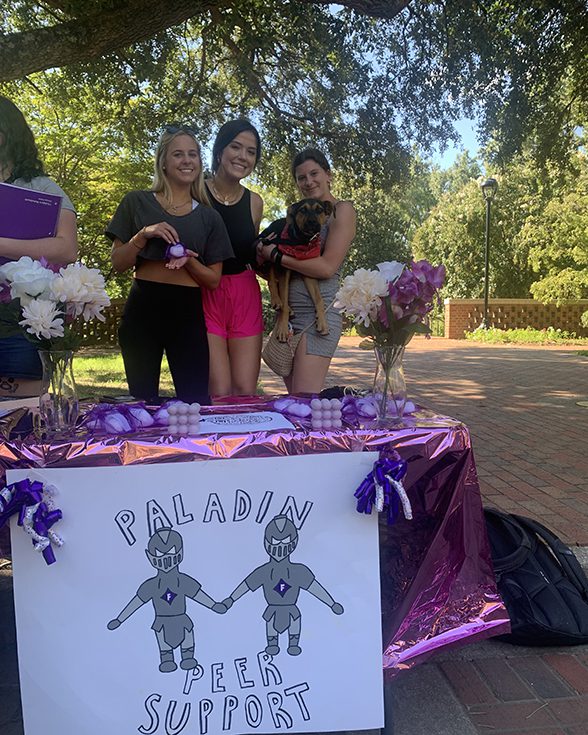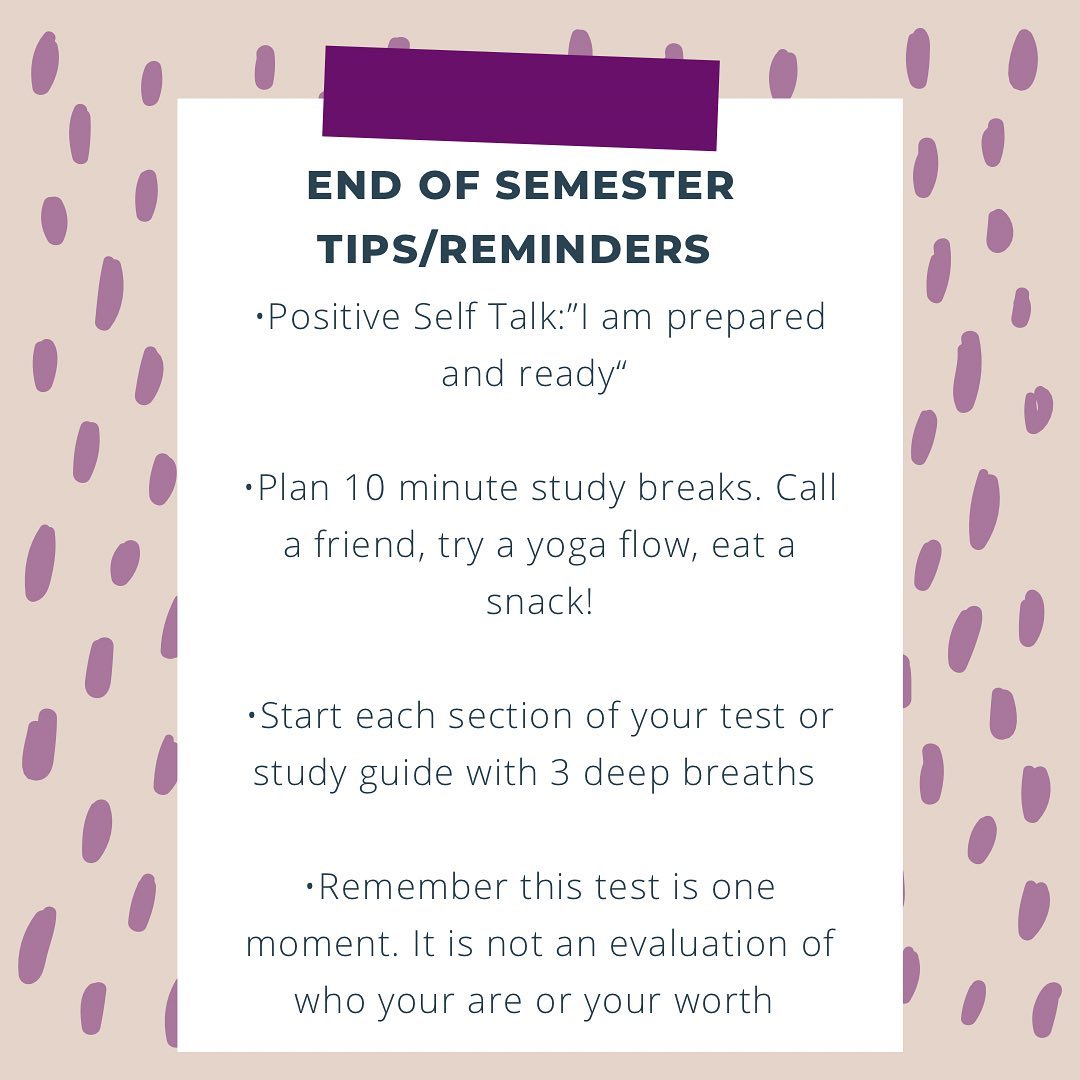Student to student, Paladin Peer Support promotes mental well-being

May is Mental Health Awareness Month. For on-demand mental health and crisis support at Furman, visit the Counseling Center or call 864-294-3031, #3.
When Furman’s Paladin Peer Support (PPS) was founded in 2019, it was intended to reach students who might not yet feel comfortable reaching out for the school’s existing mental health resources, said Emme Edwards ’24, a psychology and anthropology double major.
“It’s sometimes just hard to reach out and accept the help that might be given to you,” said Edwards, PPS president for the 2023-2024 academic year. “Especially for first-year students, it’s a huge transition. You’re not around your parents, you’re not around siblings and old friends.”
Today, students can talk things over with the Peer Mentors in the Pathways program, but in 2019, the need for PPS was clear to the group’s early members.
“They might feel more comfortable having a one-on-one conversation with someone closer to their age, who’s been through similar issues,” said Caroline Nusloch ’25, a public health major who will be the vice president of PPS in 2023-2024.
Talking one-on-one

In Spring 2021, Paladin Peer Support posted a list of stress-reducing tips on its Instagram account.
That was the idea Sarah Briere ’22 pitched to Thomas Baez and Allyson Brathwaite-Gardner, director and associate director, respectively, of the Counseling Center in 2019.
“It seemed natural to me that a student could want to start something like this,” said Brathwaite-Gardner, who had seen similar peer support programs succeed at Brown and Harvard universities. “Sarah was deeply altruistic; she felt that she had benefitted from good peer support and clinical support, and she wanted to find a way to spread it. I couldn’t not support her.”
Briere, now a clinical psychology doctoral student at Spalding University in Louisville, Kentucky, began recruiting volunteers, many of whom, like Edwards and Nusloch, were fellow members of the Alpha Delta Pi sorority. Brathwaite-Gardner helped arrange for the students to get mental health skills training from NAMI Greenville, the local chapter of the National Alliance on Mental Illness.
“We learned how to talk one-on-one and create a helpful and supportive environment,” said Edwards, who joined a later group of trainees.
They also learned the QPR (question, persuade, refer) suicide prevention intervention – necessary because, even though the Counseling Center was there to help students in distress, “suicide prevention is a campus responsibility,” said Brathwaite-Gardner. “We want to make sure everyone on this campus feels some degree of agency about asking another member of the community if they need help with suicidal thinking.”
Moving toward mindfulness
Post-Pathways, PPS is exploring new ways to support their peers. The group has pivoted toward promoting wellness and mindfulness, pointing students toward existing campus resources and helping them deal with stress and other issues through its Instagram account and information tables at campus events.
At one table, PPS promoted the Headspace meditation app, which is free to Furman students. The group has also handed out information on meditation practices and essential oils, hosted a stretching workshop and five-minute mini-massages, and used the remainder of its yearly budget “to buy everyone Starbucks coffee on campus,” said Nusloch.
In addition to basic mental health skills training from NAMI, the volunteers will receive mindfulness training from faculty advisor Mary Sturgill, a media specialist and communication studies instructor as well as a certified yoga and meditation teacher. The breathing and meditation techniques “aid you in processing negative emotions, so you don’t get stuck in that negative space,” Sturgill said. The techniques can benefit the volunteers themselves as well as the students they meet with, she said.
Edwards and Nusloch’s goals for PPS include CLPs to promote mental well-being and mindfulness, student-taught yoga classes and visits from therapy dogs, a vision which “has a future on this campus,” said Brathwaite-Gardner.
“The way that we live, the pace of our lives – when you find a group of students who want to be caring of themselves and other students, it’s a win-win,” she said.